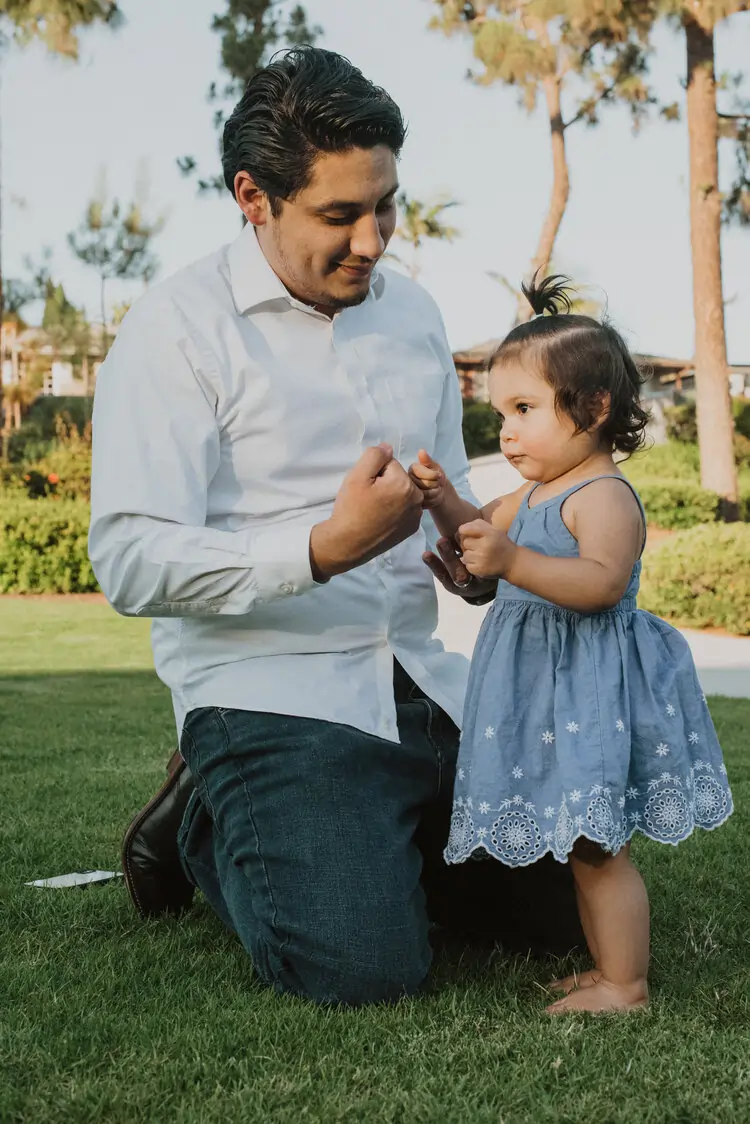
Emotionally focused family therapy is a transformative approach designed to strengthen the bonds between family members through the power of attachment and emotional connections. At its core, EFFT helps families repair and deepen relationships by focusing on emotional bonds, enhancing communication, and creating a secure environment for all members.
Key points of emotionally focused family therapy:
- Strengthens emotional bonds: Builds trust, respect, and positive communication.
- Focuses on attachment: Develops secure attachments for healthier family dynamics.
- Supports emotional regulation: Helps manage emotions effectively within the family.
In today’s world, where family members often feel like distant islands, emotionally focused family therapy offers a bridge. It provides a pathway to reconnect and heal through understanding and empathy.
This approach draws from attachment theory—illustrating how emotional bonds formed in childhood influence our adult relationships. Through understanding these dynamics, families can solve negative cycles, encourage open expression, and foster deep emotional connections. As Kathleen Smith notes in family systems theory, our interactions are more predictable than we realize, and recognizing these patterns enables us to operate more thoughtfully in our daily lives.
Emotionally focused family therapy is ideal for those who wish to restore harmony and understanding within their family, offering tools to steer life’s challenges and build lasting connections.

Easy emotionally focused family therapy word list:
– emotionally focused individual therapy
– emotionally focused therapy interventions
– emotionally focused therapy stages
Understanding Emotionally Focused Family Therapy
Emotionally Focused Family Therapy (EFFT) centers on building and maintaining trust, mutual respect, and effective communication within families. These elements are the foundation of healthy relationships and are crucial for creating a supportive family environment.
Trust and Mutual Respect
Trust is the cornerstone of any strong relationship. In EFFT, trust is cultivated by encouraging family members to be open and honest about their feelings. This openness allows each person to feel heard and valued, which in turn fosters mutual respect. When family members respect each other’s feelings and perspectives, they create an environment where everyone feels safe to express themselves.
Effective Communication
Communication is more than just talking. It’s about understanding and being understood. EFFT emphasizes the importance of clear and compassionate communication. Families learn to listen actively and respond empathetically, which helps to break down barriers and resolve conflicts. This approach not only improves current family dynamics but also equips members with skills to improve relationships outside the family.
The Science of Attachment
EFFT is deeply rooted in attachment science. This theory suggests that the bonds we form in early life shape how we relate to others throughout our lives. By understanding these attachment patterns, families can identify and change negative interaction cycles. For example, a family that frequently experiences misunderstandings might find that these stem from insecure attachment styles. By addressing these patterns, families can develop more secure attachments, leading to healthier and more fulfilling relationships.
Creating a Secure Environment
A secure family environment is one where all members feel safe to express their emotions without fear of judgment or retaliation. In EFFT sessions, therapists guide families to create this sense of security. As a result, families become more resilient, better able to steer life’s challenges together, and more connected on an emotional level.
Emotionally focused family therapy is not just about resolving conflicts. It’s about changing the way families interact, ensuring that trust, respect, and effective communication become the norm. This leads to a more harmonious home life and stronger emotional bonds that last a lifetime.

The EFFT Approach
Emotionally Focused Family Therapy (EFFT) focuses on changing how families interact by addressing negative interaction patterns and restructuring these interactions to improve felt security.
Negative Interaction Patterns
Families often get stuck in negative interaction patterns. These patterns can include escalation, invalidation, negative interpretation, and withdrawal. Imagine a family where small disagreements quickly turn into heated arguments filled with accusations and past grievances. These patterns are not only harmful but also disrupt emotional bonds.
In EFFT, therapists use tools like the Relationship Dynamics Scale (RDS) to identify these patterns. The RDS helps track how family members interact, highlighting areas that need change. By understanding these patterns, families can begin to break free from cycles that cause distress.
Restructuring Interactions
Once negative patterns are identified, the next step is restructuring interactions. This involves guiding families to new ways of connecting. The focus is on improving parental availability and responsiveness. Parents learn to understand their child’s behavior in terms of attachment needs or fears.
For example, a parent might realize that their child’s withdrawal is a response to feeling misunderstood. By addressing this need, the parent can create a more supportive environment. This restructuring helps families develop a coherent parenting team, leading to more effective caregiving responses.
Felt Security
The ultimate goal of EFFT is to improve felt security within the family. When family members feel secure, they are more open, engaged, and responsive to each other. This security is built by addressing attachment-related emotions and needs.
In therapy sessions, families share unmet attachment needs and practice effective caregiving responses. Over time, this process fosters a sense of safety and closeness. Families learn to anticipate and steer challenges together, strengthening their emotional bonds.

Emotionally focused family therapy is about more than just fixing what’s broken. It’s about creating a nurturing environment where families can grow and thrive together. By addressing negative patterns and restructuring interactions, EFFT helps families build lasting emotional security.
Goals and Benefits of EFFT
Emotionally Focused Family Therapy (EFFT) is a powerful tool for creating secure family patterns, fostering individual growth, and nurturing intergenerational relationships.
Secure Family Patterns
EFFT aims to re-establish secure family patterns by addressing blocks in parental caregiving responses. Imagine a family where everyone feels understood and supported. This is the goal of EFFT. Families learn to communicate openly, without fear of judgment or rejection. This creates a network of security that supports each family member.
By focusing on attachment needs and fears, families can break free from negative cycles. This process involves accessing and expanding awareness of unacknowledged feelings, promoting effective caregiving responses, and facilitating the sharing of unmet attachment needs.
Individual Growth
When families work together to create secure patterns, individuals within the family can experience significant personal growth. EFFT encourages family members to explore their feelings and needs, leading to greater self-awareness and emotional intelligence.
For children and adolescents, this means growing up in an environment where they feel safe to express themselves. Parents, too, gain insights into their own emotional patterns, enabling them to become more responsive and supportive caregivers. This growth is not just about solving problems; it’s about building resilience and emotional strength.
Intergenerational Relationships
Intergenerational relationships benefit immensely from EFFT. By addressing generational influences and rigid patterns, families can create a legacy of emotional health and security. Older generations learn to understand and support the younger ones, while younger family members gain respect and appreciation for their elders.
This mutual understanding and respect help bridge the gap between generations, leading to stronger family ties. Families learn to steer challenges together, ensuring that each generation benefits from the wisdom and support of those who came before.
EFFT is about creating a family environment where everyone feels connected, valued, and secure. It empowers families to grow together, ensuring that each member can thrive individually and collectively.
Frequently Asked Questions about Emotionally Focused Family Therapy
What are the key concepts of EFFT?
Emotionally Focused Family Therapy (EFFT) revolves around three main concepts: trust, mutual respect, and communication. These elements are vital for building strong family bonds and creating a supportive environment.
-
Trust: In EFFT, families work on building trust by being open and honest about their feelings and needs. This trust allows family members to feel safe and secure with each other.
-
Mutual Respect: EFFT emphasizes the importance of respecting each family member’s emotions and perspectives. This respect helps create a nurturing environment where everyone feels valued.
-
Communication: Effective communication is at the heart of EFFT. Families learn to express their emotions and needs clearly, reducing misunderstandings and conflicts.
How does EFFT differ from other therapies?
EFFT stands out due to its attachment focus and emphasis on emotional processing. Unlike traditional therapies that might concentrate solely on communication skills or behavior modification, EFFT digs deeper into the emotional bonds that connect family members.
-
Attachment Focus: EFFT targets the attachment issues that often underlie family conflicts. By addressing these attachment needs, families can mend and strengthen their emotional connections.
-
Emotional Processing: EFFT prioritizes understanding and processing emotions. Families learn to recognize and articulate their feelings, leading to deeper emotional bonds and healing.
What should families expect during EFFT sessions?
During EFFT sessions, families can expect to engage in emotional experiences that promote connection and safety. Here’s what typically happens:
-
Emotional Experiences: Sessions often involve exploring and expressing emotions in a safe space. This helps family members connect on a deeper level.
-
Connection: EFFT aims to strengthen the emotional ties between family members. Through guided interactions, families learn to support and understand each other better.
-
Safety: Creating a safe environment is crucial in EFFT. Therapists ensure that everyone feels secure to express their emotions without fear of judgment or rejection.
EFFT sessions are designed to help families break free from negative patterns and build a supportive network where everyone feels heard and understood. As families progress, they begin to experience the benefits of a more connected and emotionally resilient family unit.
Conclusion
At Mr. Therapist, we believe in the power of emotions to heal and transform lives. Our approach to therapy, especially emotionally focused family therapy, is about fostering emotional resilience and building healthy relationships.
Emotional Resilience: We help families and individuals become more emotionally resilient. This means they can handle life’s challenges with confidence and grace. By focusing on emotions as tools for healing, our clients learn to understand and manage their feelings better. This emotional strength is crucial for personal growth and family harmony.
Healthy Relationships: Strong, healthy relationships are the backbone of a fulfilling life. In our therapy sessions, we guide families to improve their communication and understanding. This leads to deeper connections and a more supportive family environment. Families learn to respect each other’s emotions and work together to overcome conflicts.
Our founder, Manny Romero, and our team are dedicated to supporting families in California. We offer both online and in-person sessions to make therapy accessible to all. Whether you’re dealing with family conflicts or seeking to strengthen your relationships, we’re here to help.
Ready to start your journey towards emotional well-being and stronger family bonds? Explore our services and take the first step with Mr. Therapist today.



